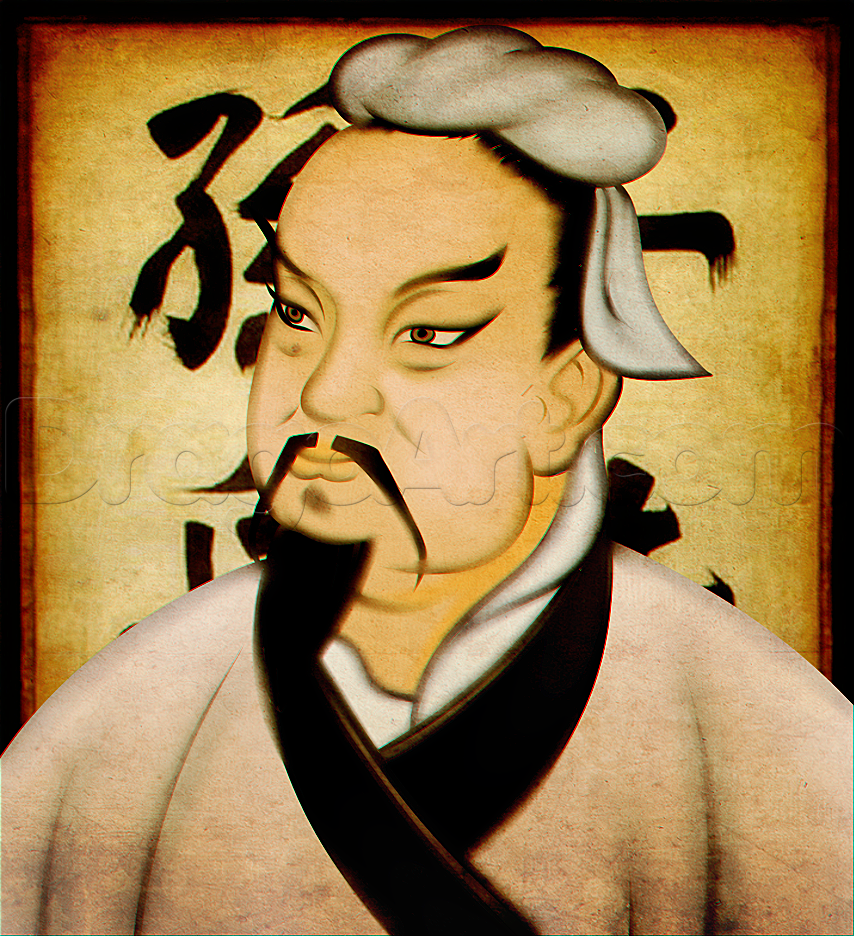
Sun Tzu
Biography
Sun Tzu was an ancient Chinese military general, strategist and philosopher, who is believed to have written the famous ancient Chinese book on military strategy, “The Art of War”. Through his legends and the influential “The Art of War”, Sun Tzu had a significant impact on Chinese and Asian history and culture. The book drew immense popularity during the 19th and 20th centuries when the Western Society saw its practical use. This work still has continued its impact on both Asian and Western culture and politics. Sun Tzu’s authenticity is still a question of debate, but the traditional Chinese accounts place him in the Spring and Autumn Period of China (722–481 BC), where he was a military general serving under King Helü of Wu. Based on the description of warfare in “The Art of War” and the striking similarity of the text’s prose to other works from Warring States period led the modern scholars to place the completion of “The Art of War” in the Warring States Period (476–221 BC).
Childhood and Life
The exact birth of Sun Tzu is still uncertain, due to unreliability of the oldest available sources. The official chronicle of the State of Lu, The Spring and Autumn Annals states that Sun Tzu was born in Qi whereas The Records of the Grand Historian or Shiji states that Sun Tzu was a native of Wu. Both sources agrees on the fact that he was born in the late Spring and Autumn Period of China (722–481 BC), where he was a general and strategist, serving under the king of Wu, King Helü. His victories at the wars inspired Sun Tzu to write “The Art of War”. In the subsequent Warring States Period (475-221 BC), “The Art of War” became the most widely read military treatise. Warring States Period was period of constant war fought between seven nations (Zhao, Qi, Qin, Chu, Han, Wei and Yan) to gain control over the vast expanse of fertile territory in Eastern China. Sun Tzu proved his theories were effective on the battlefield as he had a successful military career. Sun Tzu’s descendant, Sun Bin, also became a famous scholar of the military arts.
Later Years
The famous military treatise, “The Art of War” written by Sun Tzu depicts a philosophy of war for managing conflicts and winning battles. Some modern philosophers believe that apart from the writings of the author, it also contains commentary and clarifications from later military philosophers, such as Li Quan and Du Mu. This masterpiece, since its first publication, has been translated and distributed internationally, and was frequently referred and used by generals and theorists. There are numerous theories concerned with the completion of the text but it has been archeological proved that the Art of War was composed by at least the early Han dynasty. Since it is nearly impossible to predict the correct date of its completion, the differing theories regarding the work's author(s) and date of completion will never resolve. It was one of the six survived major works written before the unification of China in the 2nd century BC. In the late 1st millennium AD, during the Song Dynasty, these six major works were combined with a Tang Dynasty text into a collection also known as the Seven Military Classics. Being the central part of the collection, “The Art of War” formed the bases of orthodox military theory in China. The language used in the book can be distinguishable from a Western text on warfare and strategy. It was said that the text had recurrent mentions such as a leader must be “serene and inscrutable” and capable of comprehending “unfathomable plans”, which was confusing for Western readers who lack the awareness of the East Asian context. These statements will make clear sense if studied with Taoist thought and practice.
According to Sun Tzu, an ideal general was an enlightened Taoist master which led to “The Art of War” to become a prime example of Taoist strategy. It is different from the other Western works, such as Prussian general Carl von Clausewitz's On War on its spiritual dimension. To have well understanding of this text, it is essential to have awareness on Taoism. This book also gained popularity among the political leaders and those in business management. Today, it is also used in public administration and planning. Apart from describing the theories of battles, this text also discusses the diplomacy and developing relationships with other nation’s importance for the sovereignty of a state. It is now listed on the Marine Corps Professional Reading Program and is recommended to be read by all United States Military Intelligence personnel. CIA officers are also required to read this book. Scholars discovered a collection of ancient texts written on unusually well-preserved bamboo slips in early 1970s. These texts included “The Art of War” and Sun Bin's “Military Methods”. Sun Bin's “Military Methods” was written by a descendant of Sun and was lost since then. It is considered very important because of Sun Bin's relationship to Sun Tzu and also due to its addition to the body of military thought in late Chinese antiquity. This discovery led to the significant expansion of the body of surviving Warring States military theory. Sun Bin’s text, apart from being the only surviving military text from the Warring States period discovered in the twentieth century, also contains the closest similarity to “The Art of War” among all surviving texts.
